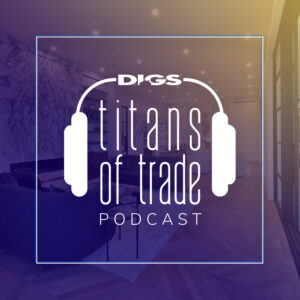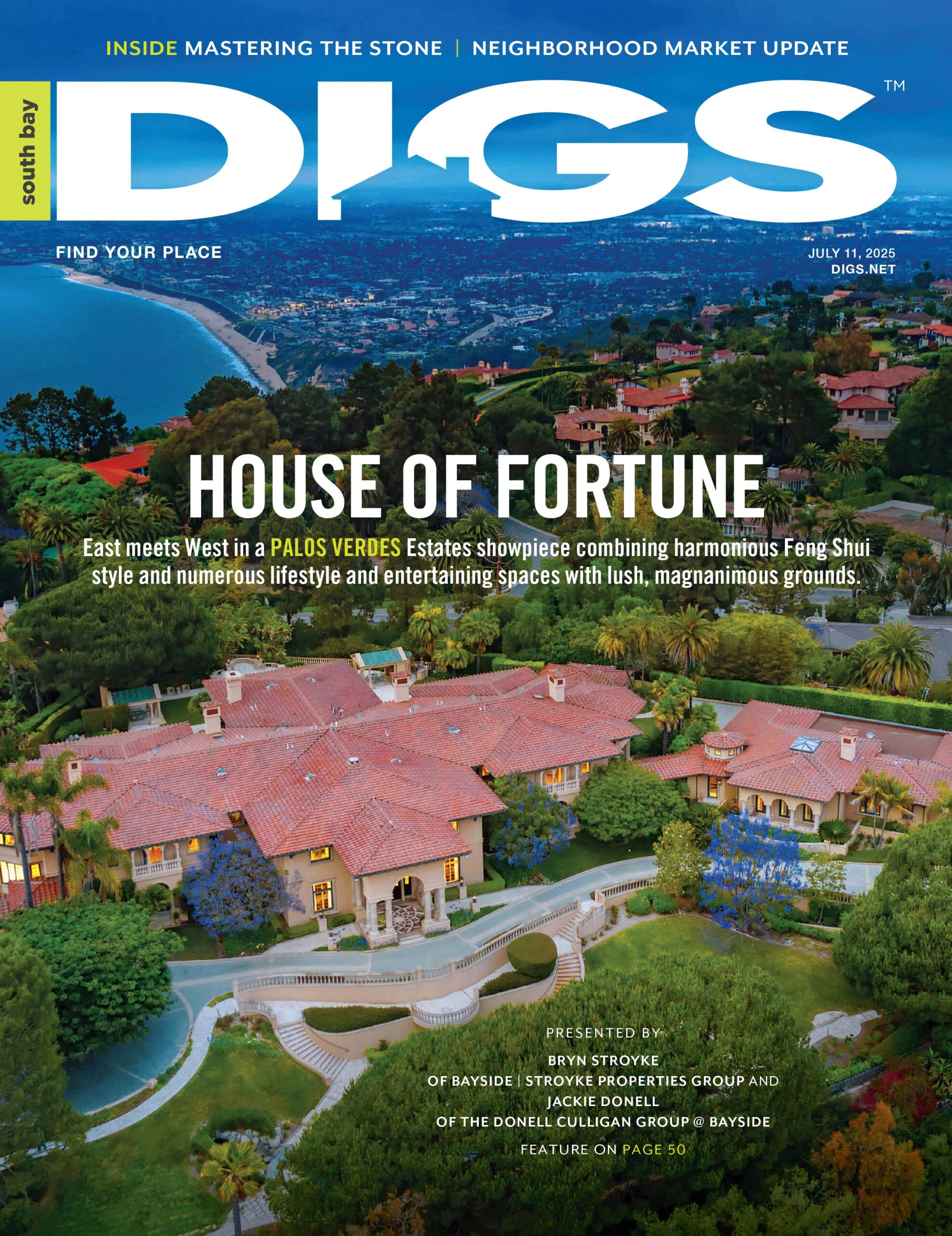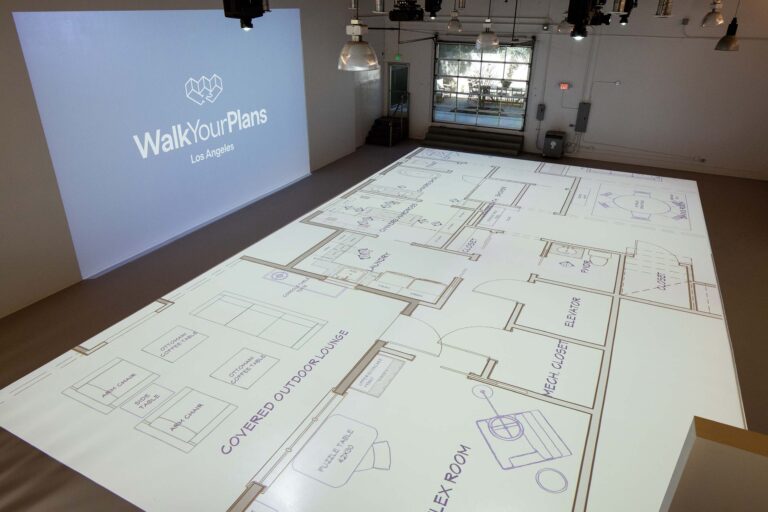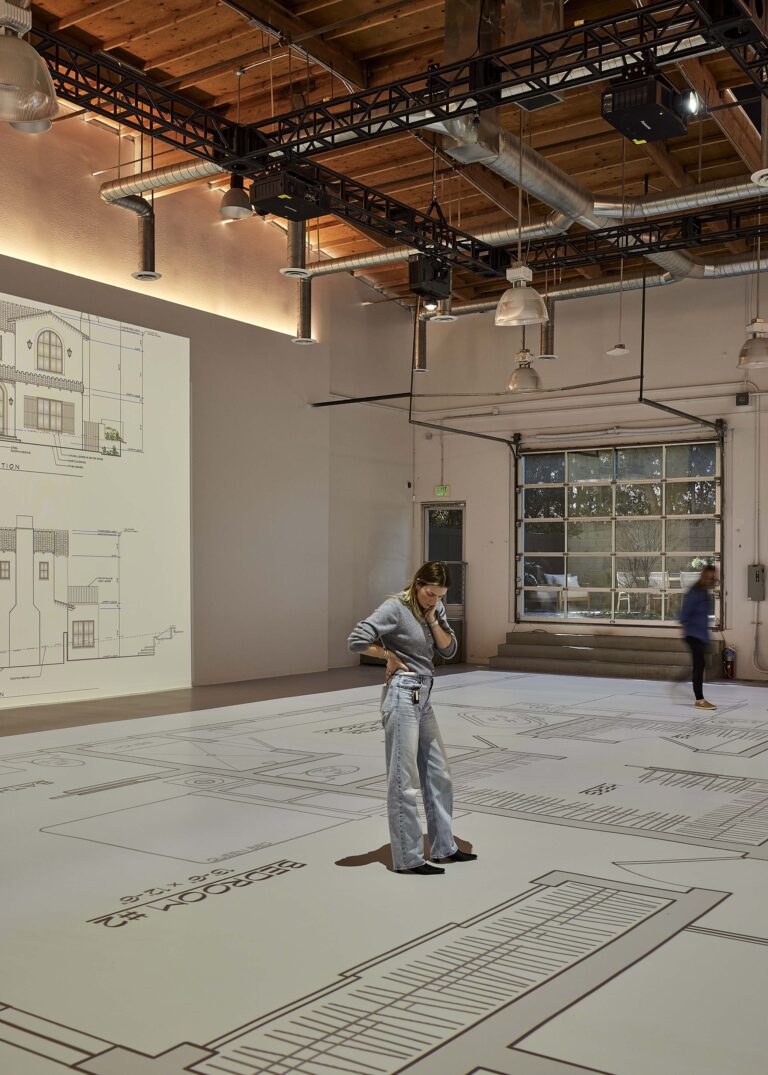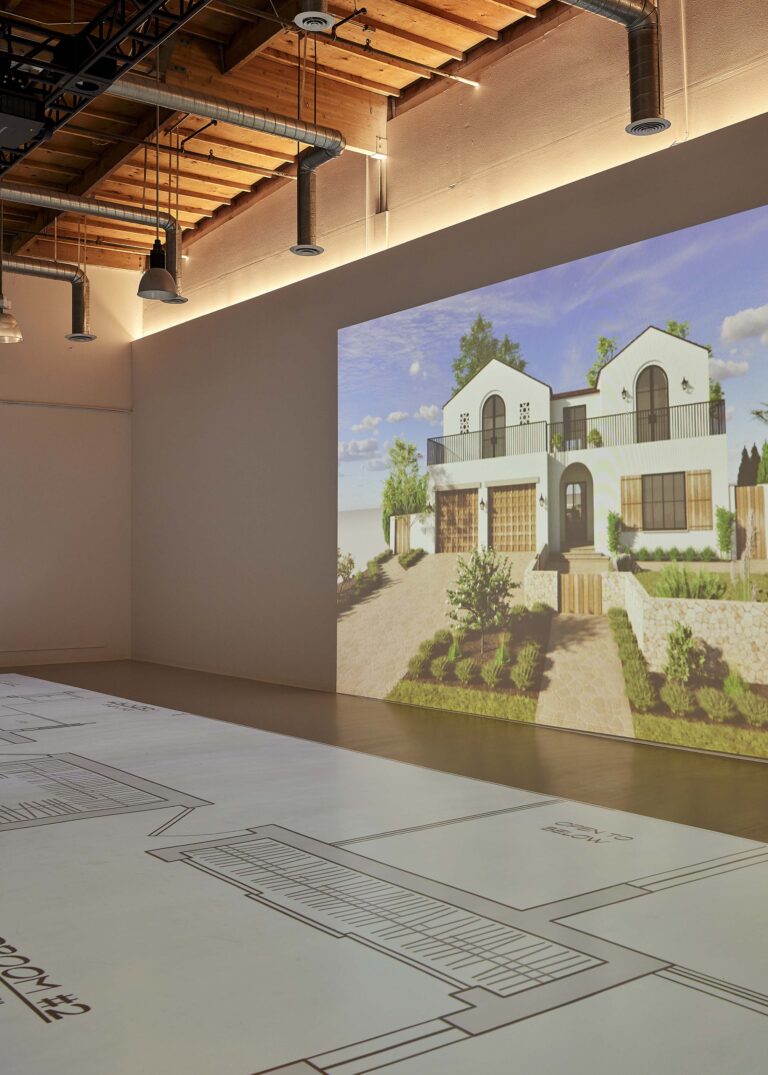Table of Contents
In this Episode
Join us as we sit down with designer Meridith Baer, the founder and CEO of Meridith Baer Home, the premier home staging company in the nation. With 25 years of experience in the industry, Meridith has transformed countless empty properties into stunning, fashionable homes that inspire buyers to bid fast and high.
But Meridith Baer’s love of design started long before she launched her successful business. As a child, she loved making personal spaces more beautiful and memorable, and those early experiences laid the foundation for her future career. She went on to have a successful Hollywood career, but it was her love of home staging that eventually led her to forge her own path in the industry.
In this podcast, Meridith Baer shares her story, discussing everything from growing up as the warden’s daughter on the grounds of San Quentin to how she landed her first Hollywood break. She also talks about her passion for design and the power of home, and how her company helps tell the unique stories of each property through alluring, artful decor.
Meridith Baer Home has been featured on CBS, NBC, ABC, and Bravo, and has been written about in DIGS Magazine, Architectural Digest, Elle Decor, Forbes, and other prestigious publications. Their HGTV series Staged to Perfection brought the company international attention and helped establish Meridith Baer Home as one of the best in the industry.
In addition to home staging, Meridith Baer Home also offers interior design, luxury furniture leasing, and InstaHome services, with offices in Los Angeles, San Francisco, New York, The Hamptons, and Miami. They maintain over 300,000 square feet of warehouse space nationwide, housing their vast inventory of furniture, rugs, art, lighting, florals, and accessories, and even design and manufacture their own signature line of furniture.
As Meridith Baer and her team prepare to celebrate the company’s 25th anniversary in 2023, she reflects on the journey that brought her to where she is today. From that first accidental staging in a friend’s home to now furnishing colonial mansions in the Mid-Atlantic States and showcase homes in Palm Springs, Meridith’s passion for design and love of home continues to inspire and uplift.
So tune in to learn more about the incredible story of Meridith Baer and how she’s helping to transform the world of home staging and interior design, one beautiful space at a time.
“I feel very satisfied that I’ve got to spend my time during the last 25 years doing what I really love,” says Meridith Baer, “not what I was supposed to do.”
Top Quotes
I was graduating from college and Jerry Bruckheimer walked up to me, the producer, and asked me to be in a Pepsi commercial!
Tweet
We want our homes to look like the person living there is well-traveled and well lived. You know, that like they spent their life going around and in their travels they picked up a little this here, a little of that there.
Tweet
When, as a writer, you’re setting the scene, you’re explaining who the characters are by where they are, where they live, how they live. So I always knew how important. was, and so I think I did know how to set the stage and it’s interesting that it’s called staging. It was not my invention to call it staging. Brokers started calling it staging and uh, I just did it.
Tweet
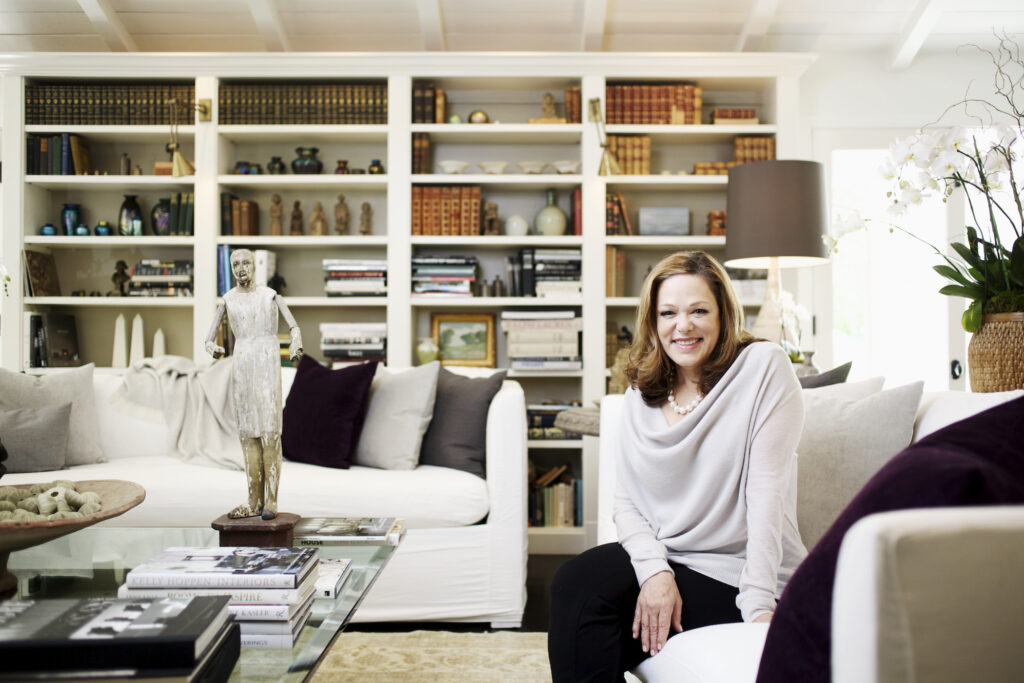
Episode Resources
Follow Meridith Baer
Follow along with Meridith Baer at meridithbaer.com
Full Episode Transcript
And, uh, so here I had my journalism degree and, uh, that commercial led to a hundred other commercials and some movies that I was in and then when I started going up for movies, I went, Hmm, I could write better stuff than this stuff. And so I started writing movies. So I did that for 20 years. So I was, I’d been an actress, a model. And then a, um, a screenwriter and a journalist, and then I accidentally tripped on this new career, uh, 25 years ago.
[00:01:46] Constance Dunn: And your company, Meridith Bear Home, has just celebrated the 25th anniversary, so that’s one’s right? Yeah. Yeah. When you look back at it, does it seem like longer or, or less than 25? [00:01:59] Meridith Baer: It feels like two minutes.I don’t know. I don’t know where those years went, honestly. It feels, uh, like just zip it went by. Yeah.
[00:02:10] Constance Dunn: Well, yeah, it’s, it’s funny because people know you as the person who innovated and created home, created home staging, which is now a staple of real estate. Um, but along the way you’ve also, you know, you keep innovating, which, Interesting.And it makes sense given that you’re a lifelong creative, and I know we, we have talked before, you’ve always been very generous to us at digs. Um, and Insta Home was something that you were talking about, and I find it fascinating, sociologically and a bunch of other reasons, but I, I, I know it’s a recent offering of your company, and so tell, tell us how it came about and what it’s been like so far.
We, we
[00:02:50] Meridith Baer: started doing, Actually probably about 15 years ago, but we didn’t, it wasn’t until really the pandemic mm-hmm. that we, that it, it just became a huge commodity. Mm-hmm. . And I think the reason is the supply chain. Uh, people couldn’t get furnishings. They couldn’t get what they needed, and we could, if they gave us a week or two in advance, we could manufacture mm-hmm.uh, the exact items they wanted or, or pull them from our inventory and give them an instant home. So we would, we would get all their specifications, everything they needed. And deliver a home full of furniture in a matter of a day or two, and then give them a price list and they could keep what they want and we’d pick up the rest.
And it, and during the, during the pandemic, we were just doing it, doing them every week. We were doing at least one every week and all over the country, we would, we delivered containers to, uh, Illinois, Arizona, Washington, dc Uh, we were doing them in Manhattan, in Connecticut, uh, in resort areas like Aspen Vale.
Lake Tahoe. And, uh, we, it was a very, very interesting because, uh, the, the whole pandemic, the whole period was, uh, so unique to anything I’d experienced in 25 years. Mm-hmm. . And here it was, people wanted home and they wanted it now because everyone was spending all of their time at home. Mm-hmm.
[00:04:27] Constance Dunn: and, [00:04:27] Meridith Baer: and it’s interesting cause I, I’m sorry.No. Uh, go ahead. Yes.
[00:04:33] Constance Dunn: Oh, because I’ve been noticing, you know, I write about luxury real estate. I’ve been doing it for like a decade and I’ve been noticing increasingly, like in the luxury realm, real estate agents are selling fully furnished homes. And, and I remember, yes, you and I, you telling me a few years ago, like, we’ll put Q-tips in the house and toothpaste.We’ve done it and we’ll, You
[00:04:54] Meridith Baer: know? Yeah. Anything they want, we’ll do it. I mean, we, we’ll completely, uh, load up the kitchen if that’s what they want. We’ll, we’ll get all of their dishes and pots and pans and all that. Anything they need will do. And then, yes. Also, we also are selling a lot of homes. Uh, completely finished last week.We just. A hundred million dollar home. Uh, and they wanted every single little thing. We didn’t pick up anything. They bought every item in the house. Interesting. Yes. And it was a billionaires, you know, third house. And, uh, and he just, that was it. He didn’t wanna have to lift a finger. Yeah,
[00:05:38] Constance Dunn: it’s funny. A hundred million.Because at first I was thinking you were saying a million, and then I realized you said a hundred million. Like how does that happen?
not
know, know,
[00:05:53] Meridith Baer: know. Beautiful house in Malibu, you know? Right on the ocean. Mm-hmm. , and you know, in the very nicest area. Right. And uh, and. . He, he just said, we’ll take it. Yeah. So we, we didn’t have to pick up the towels, even . [00:06:11] Constance Dunn: Nice. And, and you know, it goes to something that I think is very impressive at about your organization, which is like multiple offices, 200,000 square feet in Los Angeles, many artists working for you.Is that, You’ve, you have a very, it’s very consistent. I’m, you know, I get your company’s newsletters, so I see houses staged by Meridith Bear Home in Miami and the Hamptons, and you know, you name it. And they’re very consistent. So I’m curious about how you’ve maintained this wonderful consistency throughout a very big organization.
[00:06:47] Meridith Baer: Well, I, I think, uh, you know, we, we, there’s a group of us in, in my organization that, that do all of the purchasing and, and designs. So the same furniture goes to our different. Territories and a, and a certain look. And then the uniqueness really comes in the individual designer or artist. I love the way that you call ’em the artist because they are mm-hmm.um, that, that’s where the unique look of each property comes in. Is that, is we also, we go to all of the, uh, we go to flea markets, we go to, um, uh, we are always going to the auctions and, and everything to find. items that we also send all over the country, diff different ones. So there, there’s certain of our designers that will use more of those, but we, our basic look comes from our own manufacturing here in Los Angeles and overseas when, uh, with our own designs.
So I think that’s why it’s so consistent. And then, but the designers do bring in their own kind of unique look as.
[00:07:58] Constance Dunn: Yeah, no doubt. And I like that you’ve maintained, and I’m speculating, but I s you know, I see you as this, you know, artist back in the day on the west side and someone who was eyes always open, thrift shops, plants, what have you.Like, you weren’t like, oh, it should be from this boutique here. Like right there was. That I still see in, in your work, which is interesting. And, and I’m curious, tell me about, were you a thrift shop person?
[00:08:27] Meridith Baer: Like, oh, I’m, I’m a treasure hunter. Uh, , I, my mom used to drag me around to estate sales growing up.and I hated it, you know, but I was exposed to a lot and I just always, it’s just that one thing that when I look at it, it makes me smile. It just looks interesting or it’s unique and, uh, I, I’ve always been a treasure hunter for sure. Yeah, yeah, yeah. As are a lot of people in my group are as well.
[00:08:58] Constance Dunn: Yeah, and you and that vibe, you still have that, which I think is so great because you obviously work in a luxury, ultra luxury, hyper luxury market.But that still exists. Like I could see that. , you, you have probably found 50 cent treasures.
[00:09:15] Meridith Baer: Absolutely. And we, we want, we want our homes to look like the person living there is well-traveled and well lived. You know, that like they spent their life going around and in their travels they picked up a little this here, a little of that there.Mm-hmm. just like, uh, they put their glasses down to, to, you know, run to answer the phone and it’s, it’s home. We, we wanna create home. Yeah, and home isn’t, you know, a set of this and a set of that. It’s a life. It’s it’s people like to surround themselves by things they love that interest them, and our job is to make people walk into that home and just fall in love or deliver.
that home to them as Insta Home is.
[00:10:03] Constance Dunn: Yeah. And it requires not just, you know, good chops as a designer, but a sense of humans and a sense of psychology and intuition. And I’m curious about that. Like you’ve, you had a lucky break in entertainment, but to sustain that over many years, Required some intelligence and some abilities.And I’m curious, did that impact your I ? Yeah. Right. And, uh,
[00:10:29] Meridith Baer: a a lot of grit. Yes. Yes. . [00:10:33] Constance Dunn: Um, and I’m curious how much that career impacted your design career. Like, for instance, I was looking at one of your c Bs segments and. , you were saying how, you know, one of your innovations in staging was having like an open cookbook.You have a sense of people, and I’m curious where that came from.
[00:10:50] Meridith Baer: Right. Well, um, I, you know, when, when, as a writer, you’re setting the scene, you’re just, you’re, you’re, you’re explaining who the characters are by where they are, where they live, how they live. Mm-hmm. , so I always knew how important. is, and so I, I think I did know how to set the stage and it’s interesting that it’s called staging. It was not my, it was not my invention to call it staging. Brokers started calling it staging and uh, I just did it. But I knew to set the scene.The idea was, you know, for the kids’ rooms, you don’t have a hundred toys like your own. You have a couple of darling toys that even mom and dad are gonna like to look at.
And the idea is if the kids are looking at homes with their parents, they’re gonna pick up that toy and say, mommy, I want this house. So it was, it, it’s, it’s everything. Everything is there for a reason to suggest comfort. Um, and home you. You want it to look beautiful, but you really want someone to be able to imagine themselves living there in that space.
Yeah. And that’s what it is. And
[00:12:08] Constance Dunn: you’ve shared with us like you had a really interesting upbringing. You grew up in a very kind of distinctive environment. Yes, [00:12:15] Meridith Baer: I did a gated community . I grew up in San Quent prison. My dad was a, a warden and we lived on the prison grounds till I was 13. So I don’t know if that’s how I got my desired sense.I, I like stripes, but, uh, uh, But, uh, it was, it was very unique and there were only a small group of kids there, so we had to kind of make things up all the time. We had to make up our own games, our own fun, because there wasn’t really that much to do. Um, wow. But, uh, uh, I, I think that, you know, once we left there, I, every time my mom would buy a home, I would move the furniture around for her and she’d say, oh, I like, , but it wasn’t like a, a big deal.
I would just do it and she’d say fine. And so I, I think I was allowed to experiment with space as a kid even. That’s
[00:13:16] Constance Dunn: wonderful. And it, you do that to this day, I mean, do you still do that, move stuff around? [00:13:22] Meridith Baer: Oh, constantly. I completely redid my home, um, about a month ago, . I, I love it. I love to see, and it’s very powerful.It, it, it is. I mean, I, I like, uh, you know, I’ll walk through the living room on my way to the kitchen or something and I’ll kind of go, something’s not right, you know, and I, I’ll start moving things around until, oh yeah, that’s it. And, and it’s
[00:13:46] Constance Dunn: something that I think is wonderful cuz it’s not off limits to anyone, you know, which I believe style, you know, I think it’s,I hate the idea that people think they have to have a lot of money to have a fabulous space that makes them feel good and perform better. Um, I so
[00:14:02] Meridith Baer: agree. I so agree. It, it’s, yeah. It’s really just a matter of liking the things that you surround yourself with. Yeah, yeah. You know, that like if you, you know, I like looking at that painting and I like, you know, being near it, it makes me happy.Uh, you know, I, I like orchids. I like, you know, just whatever makes you happy to, to be around. It’s all gonna work together if you like it all. and
[00:14:32] Constance Dunn: you’ve have a knack for this. You could see, you know, your, your power of three tip has always stuck with me and to this it’s been . Something about that is amazing.Like three little things together.
[00:14:44] Meridith Baer: Yes. Yes. A set of three, not two, A set of three or five. Right. It has to be the odd . [00:14:51] Constance Dunn: Yes. Now you have a knack for that naturally. And I’m curious for people who are wish to train their eye to be able to transform their spaces, any idea on how things that have been helpful to you to training already a very skilled eye.Well, I,
[00:15:08] Meridith Baer: I think, um, I think that, uh, items, especially as we’re talking about accessories more mm-hmm. , uh, they ha they should have a relationship to one another. Either they’re, um, the same type of things. Uh, carved wood statues or mm-hmm. , uh, blue vases or whatever it is. Like if, if it’s, if it’s vases, then they should be similar.They should relate to one another somehow and be of different sizes or heights or two are the same size and one is small. And then it’s how do they sit next to each other? That makes them the cutest . Mm-hmm. . So it’s just, it’s really, it’s about. Things, relationships, to other things. And even like in my living room, I like the artwork to relate to each other.
I imagine that when I’m sleeping, uh, all the characters in the paintings have all kinds of interesting discussions.
[00:16:11] Constance Dunn: And, and that’s fascinating because it made me wonder what is interesting to you now? Like, what’s been exciting and floating your. [00:16:21] Meridith Baer: That’s a very good question. Um, well, I always love. The outdoors as it relates to the indoors.Mm-hmm. . So I, I, I’m always pulled to go out in the garden and start moving things around. So whatever I’m, and coming back inside and looking at it from the inside out and from the outside in. . So I, I love, I’ve lately really been loving doing that, just going back in and out and in and out, and having the outside relate to the inside.
Um, in terms of items I seem, I feel really drawn to Asian, uh, old Asian items that have been well loved. Hmm. Uh, just a, I mean, not a whole house full of it, but just I really like bringing those into mix with more contemporary pieces where I, I just don’t like it when things are a set and they’re all kind of cookie cutter.
Yeah. And it all looks from just one period. Uh, I like, I like modern, I like contemporary a lot, but I don’t. Just to be that or it feels cold and unwelcoming to me. So it’s, it’s, it’s the, it’s what’s really floating my boat is just mixing it up. Mm-hmm. and trying different relationships and it’s, it’s, uh, it, it is, it is all about relationships.
Mm-hmm. , I’m, I’m sorry, that was my friend. Spam calling. Oh, okay. .
[00:17:56] Constance Dunn: There’s relationships there. You’re . [00:18:00] Meridith Baer: But, but it, but it, you know, I do, I think in life, what I love is home and relationships, and I think that design is about relationship. It’s about I’m gonna arrange this furniture so that when my, the people I really, really love talking to are over.That we have a place to sit where it really encourages dialogue and closeness and, uh, so it’s, it’s, it’s really how am I gonna use this space? I’m gonna put things for, to use to live with the way I wanna live,
[00:18:41] Constance Dunn: you know? So this is fascinating because you’re thinking about design and enhancing.relationships. Yes.
[00:18:50] Meridith Baer: Okay. Yes, yes. And even as I, as I’m thinking, I’m actually thinking this through in the moment with you, uh, that even when I’m talking about accessories relating to one another, like in a group, it, it also is about relationships. And I think like what, when I was writing movies, Movies are about relationships practically always.You know, I mean, that is ultimately what they’re about. They’re about experiencing people. Um, and experiencing one another or having experience new experiences. So I do think that that furnishing is a lot about relationship and it is there to be used and lived with and, and enjoyed. It’s
[00:19:36] Constance Dunn: also can be like profoundly personal because I found out, I’ve found for a while, like I’d be very hesitant to invite someone to my home.Not that it was, you know, Versai or anything, but it, I mean, , when you walk in someone’s house, it, it tells you so much about them, right?
[00:19:55] Meridith Baer: I so agree constantly. I, I really do. I, it, it really does tell the story of the person and, uh, that’s why like I always have people come into my house through the kitchen.I don’t know why, but I, I almost never answer the front door. It’s just, it’s just, you know, cuz that’s kind of the, the hear. . And uh, I know other people do that as well, but I, I guess most people have people come to the front door. But, uh, for me it’s come into the kitchen cuz it’s warm and it’s, it’s vital, it’s alive.
Yeah,
[00:20:32] Constance Dunn: it’s, it’s interesting cuz I’ve been getting to know this great girl and, um, It was funny. I was thinking, I think it’s time to have her over for dinner , which just seems like this huge step. Like . Yeah, . Yeah. And I was like, why are you being so weird? I’m like, cause your home is very, like, are you ready to showcase this?Or, or, you know. Yeah. It’s just a, an interesting thing. And one of the things that. Have always that I admire very much about you as a, a woman and an entrepreneur is the fact that you’ve achieved this very high level of success, yet you’ve managed, uh, you know, from my impression to maintain those elements that are vital to being an artist.
So an openness to new. , you know what I mean? A certain Yes. A very unassuming quality. And that doesn’t always happen with sustained high levels of success. I think it’s really very valuable. Um, and I don’t know if you reflect on that consciously, but I’d love it if you could share some ways perhaps.
That’s, that’s
[00:21:39] Meridith Baer: really interesting. I’ve been thinking about it a lot. I just recently turned 75 and, and I, um, I’m very proud that I started my business when I was. and uh, um, I find that as I, sometimes I don’t e can’t even relate to being successful because I love just what I do so much and the people I work with so much that, uh, that moment and is really all that matters.I have to say that, yeah, I’m a lot, I have a lot more money than I ever had and all of. I, I’m so surprised that that doesn’t mean that much to me at this point in my life. Uh, I don’t have any desire to have a bigger, fancier house than I bought or built 20 years ago. Um, and I think ultimately, ultimately what matters to me are, are friends, people, um, and experiences.
And, uh, I mean, I guess the, you know, one of the things I love the most is making spaces beautiful. It just makes me very happy. So I, I feel kind of very satisfied that I get to spend my time or have been spending my time the last 25 years doing what I really love, not what I was supposed to do. Mm-hmm.
and uh, uh, I, I find that I really like simple. I like life to be simple. I don’t really like fancy, I like, uh, I like comfort, you know, I like friends. I mean, I mean the things that really matter and family, the things that really matter at the end of the day are those things. Yeah. Yeah.
[00:23:36] Constance Dunn: Peace. In other [00:23:37] Meridith Baer: words.Oh, you bet, . Yeah, that’s right.
[00:23:41] Constance Dunn: The ultimate luxury [00:23:45] Meridith Baer: It’s really nice not to have to worry about paying the bills. . I mean, I, it’s much nicer to not have to worry about that than to worry about it. Um, but also I’ve found, I’ve also found that trying to, I, I feel like life has given me a lot and I feel that, uh, I have a strong desire to take what I have and try to help people who need it and inspire particularly young women, um, and people in need, uh, with our, our group.uh, has been really developing a very large, uh, philanthropy division, ah, where we help Habitat for Humanity, um, and all kinds of, you know, girls Inc. All kinds of organizations in any way we can with furnishings and, uh, you know, kind of anything they need that we do that can help them. And my designers raise their hand.
They wanna go work and do this for. . Yeah. And we wanna give it, uh, to the people who need it, where, where it’s a good fit. But it’s, it’s interesting that at the end of the day, those things, or what mattered to me. Yeah. Yeah. And,
[00:25:01] Constance Dunn: and, and along with this idea of lifting, you know, a rising tide lifting all boats is that you employ lots of artists and I always love Oh yeah, I got to, I got to Willy Wonka it through your, your headquarters a few years ago, and I thought it was so cool to see this artist in your one division and it’s an artist and you’re, [00:25:23] Meridith Baer: you have actual paint artist sitting.Painting. Mm-hmm. , uh, huge canvases that are gonna go into a house the next day. Yeah. It’s that, it’s that kind of raw and wonderful. Yeah. Whenever, uh, yeah. I mean, I, I mean, seeing them and also down to like, our crews are, I have so many people that have worked wi that I’ve worked with now for 20 years. Yeah.
And the, these are. You can’t believe how much work goes into what we do, just the physical work. And these guys always have a huge smile on their face. They’re lifting stuff, they’re smiling, they’re joking. I mean, I’m sure they don’t have every day like that, but they’re, they’re just. Fantastic people. And it’s, uh, it’s great to see the way they all work together from the, from the young woman who’s, they’re painting, you know, in the warehouse, uh, to, uh, you know, to the, to my, to all the other people that are working in the office.
It’s just amazing group. Yeah.
[00:26:28] Constance Dunn: And you’ve gotten accolades for that. I mean, I know your organization, you’ve gotten like more. You know, more than a few accolades for like, being like best of employers and, [00:26:39] Meridith Baer: um, yeah. Oh yeah. Yes. And I’m, I, I would say that’s one of the things I’m also most proud of, but I’m, I’m really proud of my people and, and, and how they work together and what they do and that it all just works.Yeah.
[00:26:54] Constance Dunn: And, and it, it, it makes sense that you’re really. Thinking about this investment of other people because Yes, I think that’s my next chapter. Is that right? [00:27:08] Meridith Baer: Yeah. Well, I’m still figuring it. I’m sorry, I’m hanging up on them. Oh, it’s okay. . [00:27:17] Constance Dunn: They’re all calling. They’re all calling . Cause I imagine, and I think we live in interesting times where it’s more confessional, right?And you know, I came up, or my background is such that you really didn’t spill a lot about trials and tribulations. Right. That’s. and now it’s becoming more so like more acceptable and or not accept people. Just do it more and, and I think for you, especially with a background, in entertainment. You know, you like, again, you got that like amazing break, which I think’s awesome, but you came up from, you didn’t have, you know, an uncle in the business.
Um Right. You had all the ingredients within yourself to again, sustain the success to then move into this arena and not just like do a few homes and charge a couple hundred bucks, but, you know, consciously evolve this. And I think. It would be great to hear like some of the stories, cuz it wasn’t all, you know, lollipops and sunshine.
No doubt.
[00:28:20] Meridith Baer: No. As a matter of fact, you know, uh, the good news and the bad news is that no one lent me money along the, I mean, I couldn’t get alone. I didn’t know how to say the right things on the application to get money. Whereas I know people who can just. Uh, you know, come in, write something and they wanna give it, give us money.Um, so I had to build the company basically incrementally with the profits that we made. So I built this huge company where we’re doing over 40 million of business a year, uh, from without debt. Without debt. And, um, I feel, I feel very proud of that, but I, I’m also kind of like, how did I do that? How did we do that?
How , how did we, how did we get here? Um, uh, it, it, it’s interesting, but, you know, I think first of all, as a woman, it, it’s, it, especially 25 years ago, it, you just, you couldn’t get someone to back. , you couldn’t get anyone to back you. So, uh, we just, you know, we’d get the check for the job tomorrow and we’d run out and we’d scramble and we’d find what we needed.
And, uh, uh, you know, all kinds of things happened along the way. The good, the bad, and the ugly. And, um, we just got through it. We just worked our tails off and we got through. . Yeah.
[00:29:50] Constance Dunn: Did you think about it like when there were times where you felt like very overwhelmed or close to overwhelmed? Did you keep something in mind?Like was there something that you always kept as a, a very helpful totem mentally. That
[00:30:05] Meridith Baer: you’d like to share? It was, it was more that I, I really felt like I had no choice but to get through it. Uh, um, I remember the state board of equalization at some point said we should have been charging, um, tax on, on the staging.And we, you know, I think maybe we were three years old at that point or something like that. And, So they, so they said, so you have to go back with every job you’ve ever done and pay us the tax , and they froze my bank account. , you know, and it was kind of like, ah, you know, and I don’t know how we got through it somehow, , somehow we got through it.
I think I didn’t have money to pay anyone for a week, you know, until I figured out you know, what to do. But there, there are those kinds of things where you, you, it just, all I knew is that I had to get through it and I was going to get through it, and I didn’t have a choice. I had a lot of people depending on me.
and I was gonna get through it. Yeah. And I, uh, I, I didn’t ever really have, uh, that kind of a totem. I, I think I, it was always very important to find the good people, people that I genuinely like and respected to work with. Yeah. And, uh, I, that always meant a lot to me. Yeah. I mean, sometimes I would, I’d come across someone really, really talented that.
It just wasn’t a fit. Right. Right. And I’d, I’d have to choose the fit first. It, which is painful for someone who really values the talent ,
[00:31:53] Constance Dunn: and, and I’m curious about that. I, you know, I know it’s the experience that’s very common. And sometimes, perhaps it’s more common with women that you go, man, I knew that was gonna happen.I had it in my gut, but I went against it. And, you know, lo and behold, you know, yes. It became a, the whole, whole, you know, chowder fest all over the place. Yes, yes. And, and if you wish to share, if there was a time when you finally said, that’s it, intuition, that’s, it’s an Absolut.
[00:32:24] Meridith Baer: Yes. Yeah. You have, you have to, you have to trust your gut.There’s no question about it. Uh, yeah. When you don’t, you know, you pay the piper.
[00:32:34] Constance Dunn: It’s true. And someone very smart was telling me, intuition isn’t necessarily this, like uhha kind of not, it’s actually integrated knowledge. [00:32:44] Meridith Baer: Oh, yes, yes. Yeah. So it’s, it’s, it’s something that you just know in your gut. Um, that’s true.You know, you, you know, and, um, you can try and talk yourself out of it for different reasons, but you do. We, I think we all know that we all know a lot of stuff that we don’t know how we know it. We just know it. Yeah. And I’m curious, and it’s not, it’s not some airy fairy kind of a thing at all. It’s just as you’re saying,
[00:33:14] Constance Dunn: Now, do you have some, like a piece of advice that you wish to share that could be relevant to any, you know, new entrepreneur, female entrepreneur, um, that you think is, is really been on your mind, or you think that is [00:33:26] Meridith Baer: important?Well, I, I think one of the things that, uh, , uh, I learned 25 years ago was you say yes, and then you figure out how to do it. Nice, nice. But nice. Uh, I, I think the, the, the best thing I ever did was just to say yes to anything anyone asked me to do in the early days in terms of staging. Can you do, can you do this, uh, 15,000 square foot?
Yes, yes. You know, and then, okay, 15,000 square. Okay. But then you just do it. Yeah. And, and to, and then to, you know, it’s, it’s a matter of really seizing opportunities that are there as opposed to needing to be hit over the head with it. Right. Is that you have to just sort of kind. say yes to things as they come up.
And not every yes is gonna lead to something you wanna do or to something great, but I think to, to say, yeah, I can do this and go down the road and do the work. Mm-hmm. So I think a, I think what a lot of people forget about entrepreneurs is that it’s to be successful. I mean, to get anywhere in life, you have to show up and you have to do the.
and, and really, really give it a chance to work,
[00:34:50] Constance Dunn: give it a chance. Mm-hmm. . Now have you had to be, and this could be cur entertainment or you know, have you had to be bolder than is comfortable for you? And if so, like how have you managed to like, make that grittiness that maybe wasn’t native to your personality? [00:35:11] Meridith Baer: again, I think, I think that the way I made it was that I had to survive and I had to, I had to ha I things had, I had to make them work. Ah. And so I would just do it. I mean, even like, um, being on the show, I’d have to kind of go, oh my God, I, people are gonna see how old I am and you know, whatever. But I, the thing is, okay, you know what, I’m just gonna do it and I’m gonna be.Right. And, and I, I think cur call it courage, whatever, is you just get up, put your big girl pants on and you do it. Yeah.
[00:35:50] Constance Dunn: now. How can someone cultivate that? Or perhaps there’s no way to exercise that at the gym. Perhaps that’s just life. [00:35:59] Meridith Baer: I mean, well, I, I think to pay, I think, I think the big advice I would have is to really pay attention to what interests you.Um, to really, really pay attention to what genuinely interests you, because you have to, if you wanna be successful, you’re gonna have to sustain that. So if it is interesting to you and truly interesting, then keep following the trail of that interest. Right? Right. And it would probably lead you to what you’d be the most successful with.
Ah, okay.
[00:36:36] Constance Dunn: And you know, Back in the day when you’re like 13 adolescent or a teenager, when we start thinking about things like careers beyond my dream of being a a, a champion, roller skating, . [00:36:52] Meridith Baer: Right. [00:36:54] Constance Dunn: But you know the funny things as a kid, you’re like, I’m gonna do this. I was like, I used to see these. For Executive Secretary on tv, and I’d be like, oh, that looks so fabulous.I’d love to be . Right. . Um, but thinking back to like adolescent or teenage Meridith bearer, what would she think of Meridith Baer now? Like would she be
[00:37:16] Meridith Baer: think, oh, that’s h hilarious. She, she’d be scratching her head. She’d go, what? ? Because I think all I, I, as I recall, like. . I really, the only thing I ever really thought I would be as a writer, and it’s interesting because, you know, I went to a one room schoolhouse at San Quentin Prison, and I had the same kids in my class for, you know, every year.And I was usually the only kid in my grade. Now I was the warden’s daughter, so I got straight A’s. But then when I moved to a regular high school in Des Moines, Iowa. , they had something called a tracking system. It was 1, 2, 3, 4, 5, which really meant, um, dumb, uh, average, smart, and talented. Right? And they put me in the dumb kids class and I did poorly.
And then one day my teacher was sick and a and a substitute came in and he asked us to write something and I wrote something. And he read it and he said, would you read this to the class? And I said, sure. You might have read it to the class. And the next day he had me transferred to the talented group and I became a straight A student.
Now all this taught me was that I was bored in the dumb kids class. And, um, I, when, when this gentleman, uh, said I was a good writer, I thought about myself differently and applied myself differently and was interested. So, uh, so then I, I mean, even though I would move my furniture around for my mom, it was never like, oh, that is fabulous.
You could be a X, Y, z, a designer. That wasn’t like, my family didn’t think that way, they thought. careers, you know? And, um, that wasn’t something my family ever saw themselves doing, you know, but, or, or it just, it just didn’t come up. But a writer, yeah, that would be, that would be something I could feel good about, right?
And, and I enjoyed it. And, uh, yeah, so, so that self would’ve looked at who? I became and just scratched her head and went, what? ,
[00:39:52] Constance Dunn: or it’s, or it’s like ultimately you are an artist, which you were back then as well, a creative, [00:39:58] Meridith Baer: um, right, right. [00:39:59] Constance Dunn: Yeah. So, and it’s taken all these different platforms and, and Sure.And, and we get to appreciate them. I get to appreciate them every time I look at some of your works and I get ideas. Thank you and thank you,
[00:40:12] Meridith Baer: thank you, . But I mean all, all in all, the same kid who was underperforming in the dumb kids class is the same person who did well in the talented kids class. And I think we all are, that we’re all capable of.Underperforming and overperforming, or it’s just really that right fit, you know, that fit where you feels like, I loved this. Yeah,
[00:40:45] Constance Dunn: and being good in one thing or superlative in one thing doesn’t then mean that you have to be this heroic figure who’s wonderful in everything perhaps. No, [00:40:55] Meridith Baer: no. Yeah. Uhuh absolutely not.Um, yeah. . You know, I don’t, uh, I’m often not the smartest person in the room, you know, and I’m often, you know, don’t know a lot of stuff other people don’t know, but boy can I move their furniture around for them,
[00:41:12] Constance Dunn: darn tooton. Well, we thank you so much, . We always, I know you, you do a lot of media and. Uh, you know, have a lot of people vying for your time.And again, we appreciate that. You’ve always been so generous to us here at Digs
[00:41:26] Meridith Baer: tv. Oh, thank you. I love you guys, and it’s such a pleasure to, to see you and to, to in person. Yes.